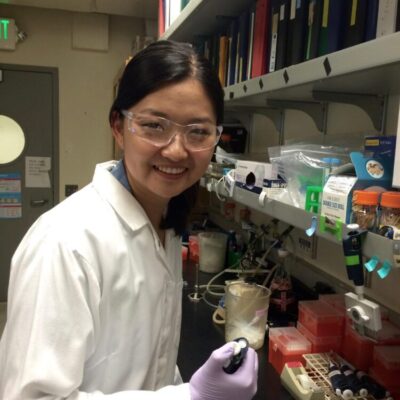Dingyuan I. Sun L&S Sciences
CRISPR/Cas9-mediated functional screening of proton pumps during development of the Xenopus mucociliary epidermis
Inhibition or mutation of transmembrane proton pumps is associated with human airway diseases, such as pneumonia and cystic fibrosis. However, the underlying molecular mechaisms remain poorly understood. A mucociliary epithelium lines the upper repiratory tract and clears the airways from inhaled pathogens. Inhibition of the proton pump gastric H+/K+ATPAse (ATP4a) causes defects in the mucociliary development through impaired canonical Wnt/-catenin signaling. Furthermore, other proton pumps were implicated in Wnt signaling regulation.I propose that proton pumps in general influence Wnt pathway activation and development of mucociliary epithelia. In my project, I will conduct a functional screen by knockout of different proton pumps using CRISPR/Cas9. Effects on the mucociliary epidermis will be analyzed by in situ hybridization and immunofluorescent microscopy. The frog (Xenopus lavis) embryos are used as a model to study vertebrate mucociliary epithelia because they possess a mucociliary epidermis and a fast development. My research will provide more understanding of the molecular mechanism of proton pumps, cell signaling and human airway diseases.
Message To Sponsor
I am grateful for the generous support of the Pergo foundation for giving me this opportunity to focus on research this summer. I have been working in the Harland lab for 3 years and it has been one of the most rewarding and educational experiences in my undergraduate education. As a Cal student, I found that it is hard to balance research with a part time job and other extracurricular activities while having a fulltime course load. I am excited to conduct my project this summer with the support of the Pergo foundation.